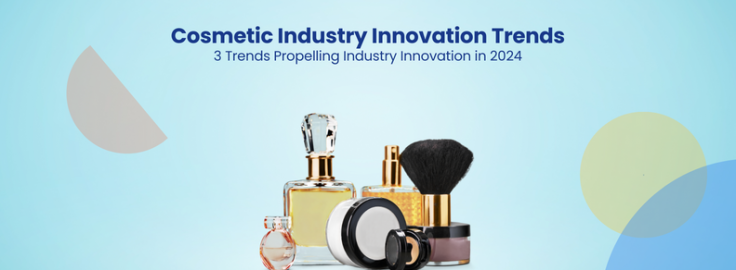Introduction:
In today’s rapidly evolving world, the cosmetics industry stands at the forefront of innovation, constantly pushing technological and sustainable boundaries. With growing consumer awareness and demand for eco-friendly products, cosmetics companies increasingly invest in research and development to create innovative solutions that marry the principles of technology and sustainability. As we step into the future, let’s explore some of the exciting advancements shaping the future of cosmetics.
Technology Driving Innovation:
Technology has always been a driving force behind cosmetic advancements, revolutionizing product formulations, manufacturing processes, and consumer experiences. In recent years, technologies such as artificial intelligence (AI), augmented reality (AR), and biotechnology have significantly impacted the cosmetics industry.
AI in Product Development:
Artificial intelligence is revolutionizing the way cosmetics companies develop products. Through AI-driven algorithms, companies can analyze vast amounts of data, including customer preferences, ingredient efficacy, and market trends, to create personalized formulations tailored to individual needs. This enhances product effectiveness and reduces waste by producing only what consumers demand.
Additionally, AI is being used to streamline the formulation process, predicting optimal ingredient combinations and concentrations for maximum efficacy. This accelerates product development and minimizes the need for animal testing, aligning with the growing trend towards cruelty-free cosmetics.
Augmented Reality for Virtual Try-Ons:
Augmented reality has transformed how consumers interact with cosmetics, offering virtual try-on experiences and bridging the gap between online and in-store shopping. By leveraging AR technology, consumers can virtually test different makeup products in real time, allowing them to see how shades look on their skin tone and how products perform before making a purchase.
This enhances the shopping experience and reduces product returns, ultimately contributing to a more sustainable retail model. Furthermore, AR-powered beauty apps offer personalized recommendations based on individual preferences, helping consumers discover new products tailored to their unique style and preferences.
Biotechnology for Sustainable Ingredients:
Biotechnology is crucial in driving sustainability within the cosmetics industry by offering alternative sources for critical ingredients traditionally derived from animal or plant sources. Through processes such as fermentation and bioengineering, biotech companies can produce sustainable alternatives to animal-derived collagen, hyaluronic acid, and other commonly used cosmetic ingredients.
These biotech-derived ingredients reduce the industry’s reliance on finite natural resources, minimize environmental impact, and support cruelty-free practices. Additionally, biotechnology enables the production of novel ingredients with enhanced functionality and efficacy, opening up new possibilities for product innovation.
Sustainability at the Forefront:
In recent years, sustainability has emerged as a critical focus area for cosmetics companies, driven by consumer demand for eco-friendly and ethically sourced products. Companies increasingly adopt sustainable practices across the entire product lifecycle, from packaging materials to ingredient sourcing.

Eco-Friendly Packaging:
One of the most visible aspects of sustainability in cosmetics is packaging. With the industry generating vast amounts of plastic waste each year, cosmetics companies are exploring innovative packaging solutions to minimize environmental impact. This includes using recyclable materials, reducing packaging waste through minimalist design, and implementing refillable and reusable packaging options.
Furthermore, advancements in biodegradable packaging materials, such as compostable plastics and plant-based alternatives, offer promising alternatives to traditional plastic packaging, significantly reducing the industry’s carbon footprint.
Ethical Ingredient Sourcing:
Consumers are becoming increasingly conscious of the origins of the ingredients used in their cosmetics products. As a result, cosmetics companies are placing greater emphasis on ethical sourcing practices, ensuring that ingredients are sustainably harvested, ethically sourced, and supporting local communities.
This includes initiatives like fair trade certification, guaranteeing that farmers and workers receive fair wages and work under safe conditions. Additionally, companies are investing in traceability technologies to provide consumers with transparent information about their products’ sourcing and production processes.
Clean Beauty Movement:
The clean beauty movement, characterized by products free from potentially harmful ingredients such as parabens, phthalates, and sulphates, has gained significant traction in recent years. Consumers increasingly seek products prioritizing safety, transparency, and efficacy, driving cosmetics companies to reformulate their products to meet these demands.
In response, companies are conducting extensive ingredient assessments, replacing synthetic ingredients with natural alternatives, and obtaining certifications such as EWG Verified and Leaping Bunny to demonstrate their commitment to clean and cruelty-free formulations.
Conclusion:
The future of cosmetics lies at the intersection of technology and sustainability, where innovation drives progress towards a more eco-friendly and ethical industry. From AI-driven product development to biotech-derived ingredients and sustainable packaging solutions, cosmetics companies embrace advancements that enhance product performance and environmental responsibility.
As consumer awareness grows, cosmetics companies must prioritize sustainability in their practices, from ingredient sourcing to product packaging, to meet evolving consumer expectations and contribute to a more sustainable future for the beauty industry. By harnessing the power of technology and embracing sustainable practices, the cosmetics industry can pave the way for a more beautiful and sustainable world.










